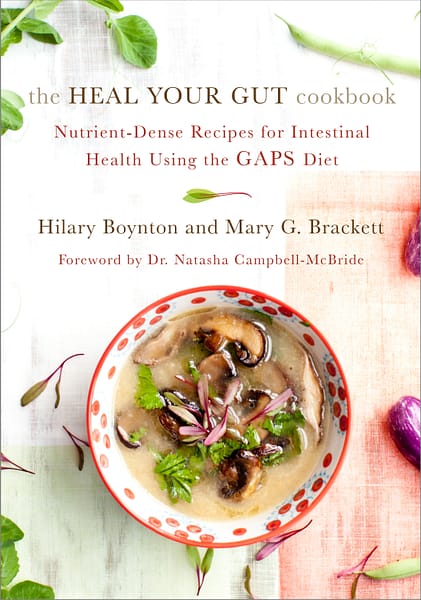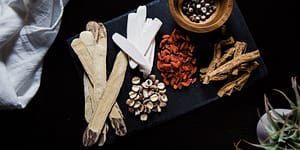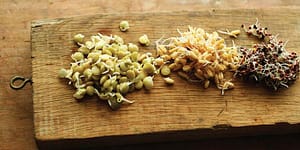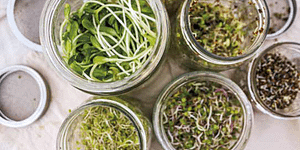Are You Getting Enough Sleep?

If you’ve been feeling drained and running ragged from lack of sleep, you are not alone. The average adult gets around 6.5 hours of sleep every night while the recommended amount is 7-8 hours of sleep. To upgrade your performance at work and home, sleep makes all the difference in your ability to keep up with life’s demands.
The following is an except from Peak 40 by Marc Bubbs. It has been adapted for the web.
Start with Sleep
Lack of sleep destroys mental and physical health. There is almost nothing that can derail your health faster than insufficient sleep. Lack of sleep is strongly associated with:
• increased risk of Type 2 diabetes
• cardiovascular disease
• cancer
• dementia
• depression and anxiety
• mortality1
Lack of sleep also:
• pummels your immune system, increasing your susceptibility to cold and flu
• worsens your blood sugar control, causing a constant rollercoaster of energy highs and lows throughout the day
• increases your daily calorie intake by an average of just over 200 calories per day (might not sound like much, by it adds up in the long run)
• lowers testosterone levels by 10–20 per cent and zaps your libido2
On a day-to-day basis, lack of sleep wreaks havoc on your mental health, too, impairing your cognition, decision-making and ability to problem-solve and consolidate memories. It is while you are asleep that your brain performs critical housekeeping tasks: clearing out unnecessary clutter and toxins that build throughout the day; rebuilding the body via signaling your cells to repair any damaged DNA; and synergizing all the information we’ve taken in that day. As you accumulate a growing sleep debt, it worsens subjective measures of well-being, like fatigue, mood, muscle soreness, depression and confusion. If you’re struggling with low mood or anxiety, lack of sleep contributes in a major way.
That’s not all, the pitfalls continue. Insufficient sleep also makes you more likely to experience pain and reduces your ability to tolerate pain by approximately 10 per cent3. Insufficient sleep also leaves you more prone to injury.
If you’re active and feeling pretty good, you’re still not immune to the adverse effects of insufficient sleep. If you fail to achieve 8 hours’ sleep per night, you’re at 1.7 times greater risk of injury, compared to those who get at least 8 hours4. If you’re an exercise enthusiast who likes to compete on the weekends, cumulative lack of weekday sleep negatively affects your performance on the weekend through poorer reaction
There’s a reason Paula Radcliffe aims for 8–9 hours’ sleep; it enhances her recovery and thus propels her performance. But in mid life, life becomes so busy, sleep gets the short end of the stick. If you need more hours for work, family and friends or training, you typically have to sacrifice sleep to make it happen. Not only that, by mid life you’ve accumulated a large sleep debt (as you likely already know). If you’ve got kids, you may be getting woken up periodically through the night. So, what do you do now? Unfortunately, there are no short-cuts; the need for sleep has not changed in more than two million years of evolution. But you can get strategic with how you improve sleep quality and nudge forward your total sleep time to enhance all areas of mental and physical health.
How Much Sleep?
The National Sleep Foundation recommends adults get 7–9 hours’ sleep per night6. However, almost two-thirds of adults worldwide report not getting enough sleep7. The typical person only gets about 6.5 hours per night and almost 50 per cent of Americans admit to suffering health consequences as a result. Alarmingly, 30 per cent of the population get less than 6 hours’ sleep per night, further exacerbating these risks. If you consider that even one night of poor sleep increases rates of workplace injury and heart attacks, and seven days of less than 6 hours leaves your mental state equivalent to a person legally intoxicated, what does half a decade or more of poor or interrupted sleep do to you? But, it doesn’t have to be this way. You may need to weather the storm for a period of time, but by steadily developing the right habits, you can reboot your recovery and rediscover your best health.
Why Am I Always Sick in Mid Life?
Parents with young children at home are often sick. This is not breaking news. And while it’s true that kids in nursery or daycare and schools are exposed to more pathogens (and thus you are as well), it’s not the primary reason you’re always getting sick.
In order to get sick, two things must happen; you must be exposed to a virus and you must be immune-compromised. While you may not have much control over the former, you certainly do over the latter. It starts with sleep. The importance of sleep for maintaining a robust immune system was first highlighted by a study comparing how much sleep you get nightly with your risk of infection. Researchers divided the groups into varying sleep times – more than 7 hours, 6–7 hours, and less than 6 hours per night – to see who got sick the most. How did lack of sleep impact infection? The group getting between 6–7 hours a night were three times more likely to get sick (compared to those with at least 7 hours nightly), while the group getting less than 6 hours’ sleep were at a 4.5-fold increased risk of infection8.
Don’t Reach for the Coffee Immediately
After all those restless nights, the first thing you probably reach for is your morning cup of coffee, right? Well, caffeine after a poor night’s sleep might not be the best idea.
In 2020, a study in the British Journal of Nutrition by the Centre for Nutrition, Exercise and Metabolism in the UK, examined how a morning coffee impacts markers of metabolic health after a night of broken sleep. By itself, a night of bad sleep does little to impact your metabolism adversely. But, when you rely on caffeine too heavily the following morning, it can really throw your blood sugar levels out of whack.
Study participants who drank a strong black coffee before breakfast exhibited a 50 per cent greater blood glucose response to breakfast9. That is a massive spike. But, there is an easy fix. If you eat breakfast first, then have your coffee, you offset these effects. (Breathe a sigh of relief!)
Can You ‘Bank’ Sleep?
If you know you’re about to go through an intense period of lack of sleep, is it possible to offset the adverse effects on mental and physical performance by ‘banking’ more sleep in the days leading up to it? Researchers extended the sleep of 12 adults over a six-day period before one night of total sleep deprivation. Mental and physical performance measures were assessed before and after the sleepless night. What did they uncover? Adding an extra 2 hours’ sleep per night, over the six days, significantly improved time to exhaustion in the exercise test (reducing how difficult the task felt to participants) and positively impacted mental performance as well10. The study authors also noted that banking sleep could be highly beneficial for individuals with a high workload and young children. Can’t find an extra 2 hours to nudge forward your bedtime? You’re not alone. But, even 30–60 minutes can have highly beneficial effects.
While ‘banking’ sleep can be helpful at specific times, most people still need more sleep all the time. Dr Norah Simpson, PhD, from Stanford University School of Medicine says that repeatedly trying to offset lack of sleep during the week by catching up on your sleep over the weekend is not a recipe for long-term success. She advises focusing on your sleep on a night-to-night basis, rather than running really lean during the week and hoping to catch up on weekends, because of the myriad negative effects on mental health and performance, such as diminished attention, learning, ability to problem-solve and mood11. There is also a genetic component to how sleep deprivation impacts you. Your vulnerability to sleep loss appears to be an inherent trait, so if you really struggle on short sleep, it may be difficult to offset by merely banking sleep and you’ll need to be consistent with your efforts to commit to better nightly sleep12.
Notes
1. Michael A. Grandner et al., ‘Mortality Associated with Short Sleep Duration: The Evidence, the Possible Mechanisms, and the Future,’ Sleep Medicine Reviews 14, no.
3 (June 2010): 191–203, https://doi.org/10.1016/j.smrv.2009.07.006.
2. S. Fenton et al., ‘The Influence of Sleep Health on Dietary Intake: A Systematic Review and Meta-analysis of Intervention Studies,’ Journal of Human Nutrition & Dietetics (October 2020), https://doi.org/10.1111/jhn.12813.
3. S. Hakki Onen et al., ‘The Effects of Total Sleep Deprivation, Selective Sleep Interruption and Sleep Recovery on Pain Tolerance Thresholds in Healthy Subjects,’ Journal of Sleep Research 10, no. 1 (July 2008), https://doi.org/10.1046/j.1365-2869.2001.00240.x.
4. Matthew D. Milewski et al., ‘Chronic Lack of Sleep Is Associated with Increased Sports Injuries in Adolescent Athletes,’ Journal of Pediatric Orthopaedics 34, no. 2 (March 2014): 129–33, https://doi.org/10.1097/BPO.0000000000000151.
5. Hugh H. K. Fullagar et al., ‘Sleep and Athletic Performance: The Effects of Sleep Loss on Exercise Performance, and Physiological and Cognitive Responses to Exercise,’ Sports Medicine 45, no. 2 (2015), https://doi.org/10.1007/s40279-014-0260-0.
6. Shalini Paruthi et al., ‘Consensus Statement of the American Academy of Sleep Medicine on the Recommended Amount of Sleep for Healthy Children: Methodology and Discussion,’ Journal of Clinical Sleep Medicine 12, no. 11 (2016), http://dx.doi.org/10.5664/jcsm.6288.
7. Michael A. Grandner et al., ‘Mortality Associated with Short Sleep Duration: The Evidence, the Possible Mechanisms, and the Future,’ Sleep Medicine Reviews 14, no.3 (June 2010): 191–203, https://doi.org/10.1016/j.smrv.2009.07.006.
8. Sheldon Cohen et al., ‘Sleep Habits and Susceptibility to the Common Cold,’ Archives of Internal Medicine 169, no. 1 (January 2009), https://doi.org/10.1001/archinternmed.2008.505.
9. Harry A. Smith et al., ‘Glucose Control upon Waking Is Unaffected by Hourly Sleep Fragmentation during the Night, but Is Impaired by Morning Caffeinated Coffee,’ British Journal of Nutrition 124, no. 10 (June 2020), https://doi.org/10.1017/S0007114520001865.
10. Pierrick J. Arnal et al., ‘Sleep Extension before Sleep Loss: Effects on Performance and Neuromuscular Function,’ Medicine & Science in Sports & Exercise 48, no. 8 (August 2016): 1595–603, https://doi.org/10.1249/MSS.0000000000000925.
11. Norah Simpson, ‘Impacts of Sleep Loss on Pain, Injury-Risk, & Neurocognition,’ Interview with Dr Marc Bubbs, The Performance Nutrition Podcast, October 26, 2018, https://soundcloud.com/drbubbs/s2e41-impacts-of-sleep-loss-on-pain-injury-risk-neurocognition-norah-simpson.
12. Hans P. A. Van Dongen et al., ‘Systematic Interindividual Differences in Neurobehavioral Impairment from Sleep Loss: Evidence of Trait-Like Differential Vulnerability,’ Sleep 27, no. 3 (May 2004): 423–33, https://pubmed.ncbi.nlm.nih.gov/15164894/.
Recommend Reading
Recent Articles
Learning how to ask questions that will elicit relevant information is as much an art form as creating an herbal formula. Follow this broad list as a starting point.
Read MoreWant to start your own medicinal herb garden? Passionflower, lemon balm, and goldenseal are great places to begin! These herbs are jam-packed with medicinal properties and easy to grow in a majority of climates.
Read MoreSprouts are easy to cultivate, mature quickly and pack a nutritional punch! You can make nutrient-rich sprouts from all kinds of edible seeds in your kitchen.
Read MoreSuffering from frequent headaches is miserable and immobilizing. If you haven’t had luck treating and preventing your headaches, skip the over-the-counter approach and prepare herbal formuals for migraines to use in the future! The following is an excerpt from Herbal Formularies for Health Professionals, Volume 4 by Jill Stansbury. It has been adapted for the…
Read More









